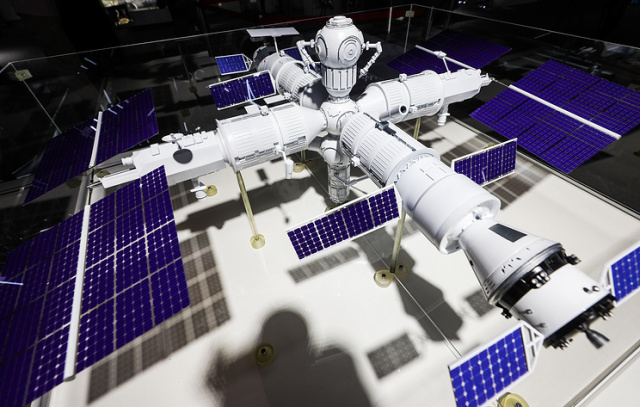First of all, the ROS will conduct research on the radiation safety of the crew, it is also planned to study the effect on the body of conditions outside the Earth's orbit, during flights to the Moon and into deep space, said Yuri Smirnov, a leading engineer at the Institute of Biomedical Problems of the Russian Academy of Sciences
NOVOSIBIRSK, September 27. /tass/. Part of the biomedical research that is being conducted on the International Space Station (ISS), after its operation is completed, will be transferred to the future Russian Orbital Station (ROS), said Yuri Smirnov, head of the Laboratory for the development and implementation of biomedical programs, leading engineer of the Institute of Biomedical Problems of the Russian Academy of Sciences, at the Openbio forum.
In February, in an interview with TASS, Vladimir Kozhevnikov, Deputy General Designer of RSC Energia, Chief designer of ROS, reported that the launch date of the first scientific and energy module of ROS is planned for the end of 2027, the nodal, gateway, base and target modules for the period 2028-2030.
"This year we carried out [work] on the development of biomedical research programs at the Russian Orbital Station. There are new studies, new directions that have been proposed in connection with the change in the orbit along which the orbital station will pass and, of course, some areas of research that are currently being conducted on the ISS will be transferred to the Russian Orbital Station upon completion of its operation," Smirnov said.
He added that due to the change in the orbit of the ROS, first of all, studies of the radiation safety of the crew will be conducted. It is also planned to study the effect on the body of hypomagnetic conditions in which astronauts will be outside the Earth's orbit, in particular during the implementation of the lunar exploration program and deep space flights.
He added that the main areas that are being conducted on the ISS and that should be developed in the future are issues of biological life support systems, in particular, the development of bioreactors for growing, for example, algae, the creation of technologies that ensure the production of food and pharmaceuticals in space flight.
In November last year, Roscosmos CEO Yuri Borisov said in an interview with TASS that the duration of participation in the ISS project would depend on the technical condition of the Russian segment, the timing of the deployment of the Russian Orbital Station, the start of flights to it by Russian cosmonauts and a number of other factors. At the end of February 2023, a meeting of the Scientific and Technical Council (NTS) of Roscosmos was held with the participation of the management of the state corporation, subsidiaries and organizations of the Russian Academy of Sciences, which are co-executors of work on the Russian segment of the ISS. Following the meeting, the NTS approved the decision to extend the life of the Russian segment of the station until 2028 and began preparing documents for contacting the government.
The Openbio Forum, dedicated to virology and biotechnology, takes place from September 26 to 29 in the Koltsovo science city near Novosibirsk. The Forum has been held annually since 2013. TASS Agency is the general information partner of the forum.

